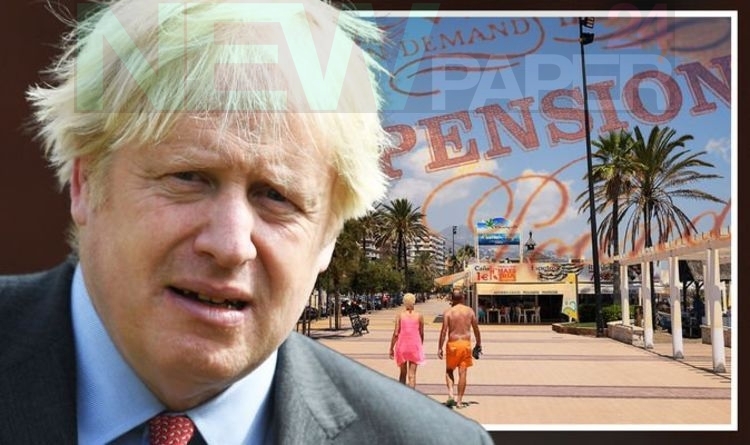
The 520,000 British pensioners who live abroad, including 30,000 or so in Thailand, are being encouraged to use their newly-endowed power to vote in UK general elections. The idea is to vote only for a political party which guarantees to upgrade their state pensions annually, just like their contemporaries back home.
The right to the expat vote in British elections was agreed earlier this year by Boris Johnson’s government and replaced an old rule that the franchise lapsed after 15 or more years abroad. However, there is an elaborate registration procedure in constituencies which may deter all but the most fervent expats. Many constituencies have changed their names and boundaries over the years.
The freezing of the UK old age pension – at the level when they left Britain – applies to expats living in more than half of all countries, including Thailand and most of the Commonwealth. However, Brits living in the European Union, the United States and even the Philippines do receive annual increases in the normal way. The reasons are archaic. A special Brexit deal was reached with the EU, whilst some other countries are exempt from freezing because of “reciprocity”. Best of luck sorting that one out.

John Duffy, chairman of the International Consortium of British Pensioners, said the discriminatory practice was indefensible as the frozen pensioners had paid their taxes in working life just like everyone else. He believed that a huge effort from elderly expats could make a real difference at general election time. The next one is scheduled for 2024 but could come earlier as the law for fixed-term parliaments has been abolished.
The issue has been particularly sensitive in Thailand’s expat communities which have long lobbied against the injustice. One stalwart, Pattaya based Howard Kelly, publicized umpteen online petitions and even helped to fund an unsuccessful appeal to the international court of justice. But the British government refuses to budge, claiming that the funds are needed to support hard-pressed pensioners at home.

Baroness Altmann, a former pensions minister, said she hoped that the new voting rights would lead to a reconsideration of the issue. At the 2020 general election, the Labour party did promise reform and was promptly trounced at the polls. A spokesperson for the department of work and pensions said recently there were no plans to change policy.
Political hacks say that the notion of the expat vote determining the next UK government is pie in the sky. Only a tiny fraction is likely to bother to register to vote, or even to understand the registration bureaucracy. The government will be in no mood post-pandemic to be generous. Even if the UK authorities did capitulate, they might resuscitate the callous idea of removing tax-free personal allowances from expats’ total income as their contribution to Britain’s recovery process. All that glitters is not necessarily gold.
 |
 |
 |





